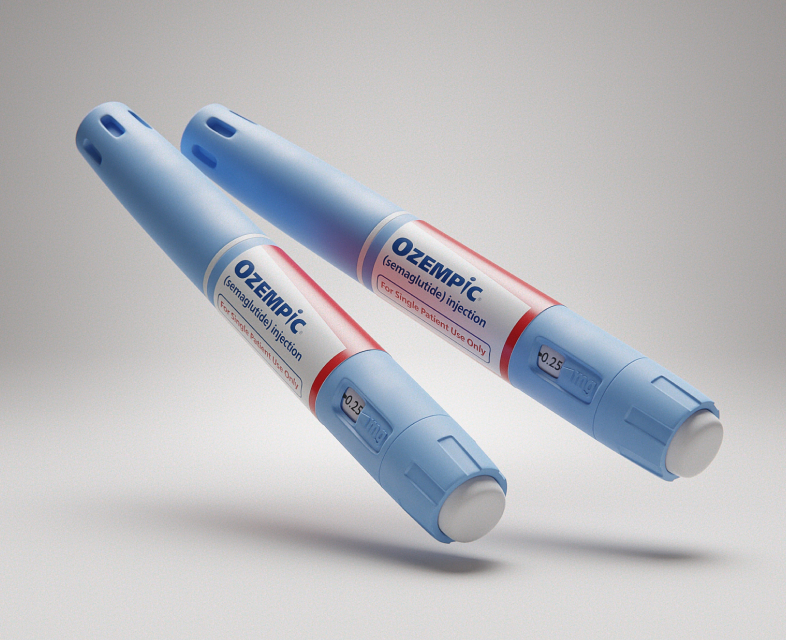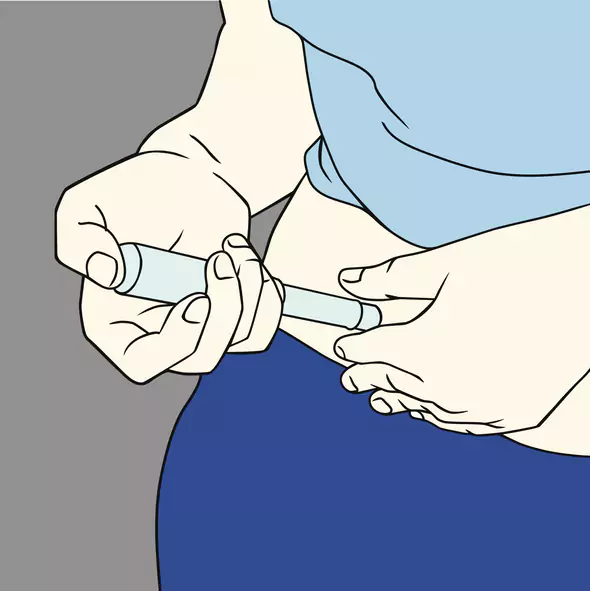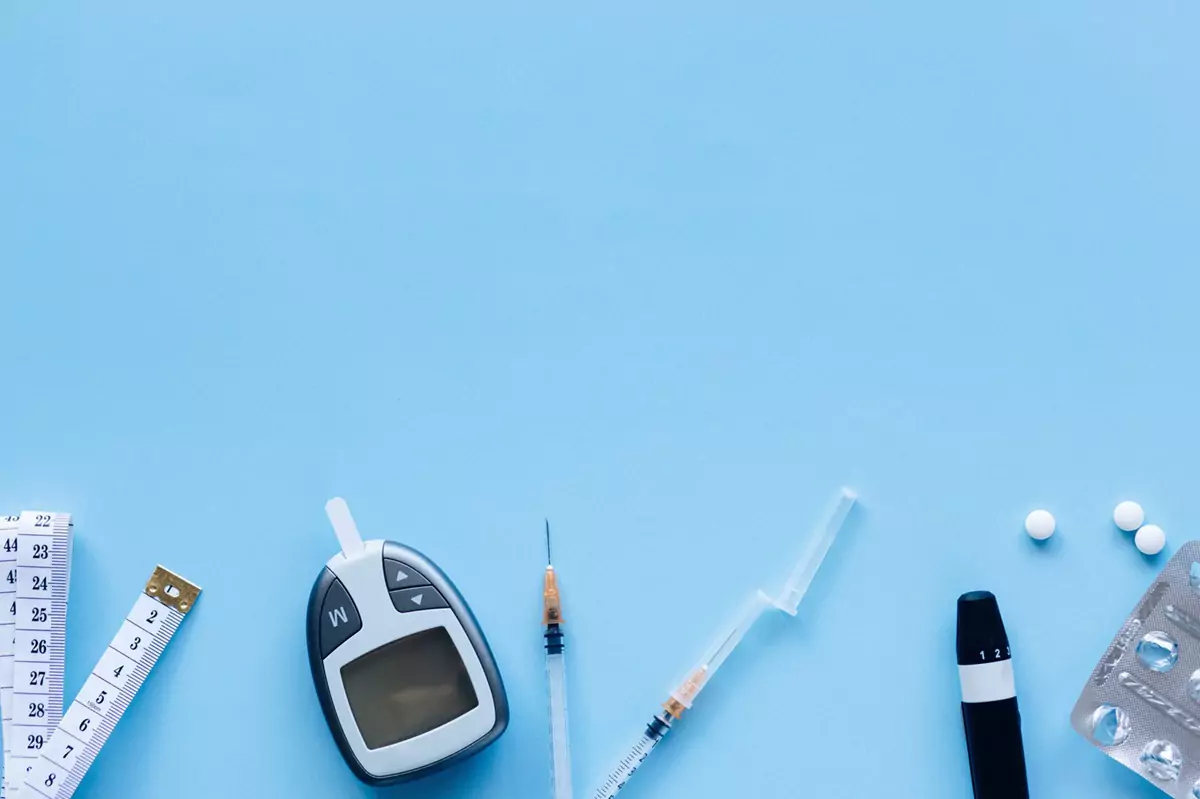
UP TO 40% OFF SITEWIDE






Is There A Generic For Semaglutide?


In a world where medical breakthroughs abound, one name that often makes its way to the forefront of healthcare discussions is semaglutide. Known widely by its brand names including Ozempic, Wegovy, and Rybelsus, semaglutide is a cornerstone in the management of type 2 diabetes and, in some cases, serves as a valuable aid in weight loss.
However, the lack of a generic alternative raises questions about affordability and access. This article delves into the nuances of semaglutide generic, its brand variants, and the implications of the current market dynamics, particularly highlighting the impact of the absence of a generic version on patients and healthcare systems.
What Is Semaglutide?
Semaglutide holds a pivotal role in the regime of people suffering from type 2 diabetes. It's a tool used in combination with a balanced diet and a regular exercise program, with the goal of reigning in high blood sugar levels. This dual-action approach gives people with type 2 diabetes a fighting chance against this relentless disease, promoting a healthier, balanced lifestyle.
Semaglutide Brand Names
This potent synthetic glucagon-like peptide-1 (GLP-1) receptor agonist is recognized under a spectrum of brand names, with Ozempic, Wegovy, and Rybelsus being among the most widely recognized. Let's first delve into the unique aspects of each of these brand name variants.
Ozempic, a name that has become increasingly familiar in medical circles, sets itself apart with its convenient and efficient delivery method. The Ozempic injection pen is ingeniously designed to contain multiple doses of semaglutide. This not only facilitates ease of administration, but it also minimizes the number of pens that a patient needs to purchase and handle, potentially decreasing waste and offering a more streamlined treatment regimen.
Contrastingly, other brand versions like Wegovy and Rybelsus may operate on a single-dose model. This model could be considered a plus or a minus, depending on individual patient needs and preferences. For instance, for patients who prefer a fresh injection device with each dose or those with infrequent dosage requirements, these single-dose pens may be more appealing.
But for others who desire more convenience and less waste, the multiple-dose Ozempic pen might be a more fitting choice. In the world of pharmaceuticals, the existence of generic alternatives is a pertinent topic.
Generic drugs have made waves in the healthcare industry, primarily because they present a more cost-effective alternative to brand-name drugs.
They essentially democratize healthcare by making it more affordable for a wider range of individuals. In addition, generics usually become available after the patent on the brand-name drug expires, providing a significant reduction in costs for patients and healthcare systems.
The Issue of Generic Availability
Yet, for semaglutide, as of the time of this writing, we encounter a particular snag in the situation - the absence of a generic alternative. This apparent gap in the generic market can be attributed largely to the practices of Novo Nordisk, the pharmaceutical titan behind the manufacture of Ozempic.
Novo Nordisk, with its firm grip on the production of semaglutide, has chosen not to offer this compound for compounding purposes.
Compounding, a common practice in pharmacy, involves the creation of personalized medications to fit the unique needs of a patient. The decision by Novo Nordisk to keep semaglutide off the compounding table essentially eliminates the possibility of a more affordable, generic version of the drug.
This lack of a generic option is a significant factor that patients and healthcare providers must grapple with when considering treatment options. Although it may pose challenges in terms of affordability, it's also crucial to understand that the efficacy and safety of semaglutide have been well-documented, which has contributed to its widespread use and acceptance.
While there are several brand names under which semaglutide is available, each with its distinct features and advantages, the absence of a generic version remains a significant concern. As the landscape of pharmaceuticals continually evolves, it is hoped that affordable alternatives will become more readily available for a broader spectrum of patients, providing a balance between cost and effective treatment.
The Manufacturer's Stance on Generics
The stance of the manufacturer on the production of generics is instrumental in shaping both the availability and affordability of a specific drug. One such instance worth examining is the case of Novo Nordisk and their diabetes drug, Ozempic.
As a prominent name in the industry, Novo Nordisk's policies and actions have a far-reaching impact, not only within the market but also on the people who rely on their medications for survival and wellbeing. Novo Nordisk, at this point, has chosen not to sell semaglutide for the purpose of compounding.
For those unfamiliar with the term, compounding in the pharmaceutical industry refers to the process where ingredients of a drug are combined to create a medication tailored to the needs of individual patients. A decision not to sell for compounding purposes essentially means that the drug isn't made available to other manufacturers for them to create a generic, or non-brand, version.
As a result of this decision, there currently isn't a generic form of semaglutide that has received the green light from the Food and Drug Administration (FDA). In simpler terms, no generic version of Ozempic has yet made its way into the market. This lack of a generic counterpart inevitably leads us to consider the financial implications for patients.
Semaglutide is widely acknowledged as a highly effective weapon against type 2 diabetes. It has proven itself in numerous clinical trials and demonstrated its ability to help people manage their symptoms and reduce the risk of dangerous complications. Despite the drug's significant potential, it comes at a considerable cost - a cost that could potentially be reduced should a generic version become available.
Pricing of Semaglutide
Without a generic form in sight, the cost of semaglutide stays at an elevated level, inevitably making the drug a less accessible option for many patients. The high cost of the drug stands as a barrier, potentially preventing some from gaining access to this innovative treatment.
The current cost of semaglutide reflects its exclusivity, its unique formulation, and the absence of generic competition. Its pricing, which remains consistently high, is a reflection of the lack of cheaper alternatives. This not only places a significant financial burden on patients but also strains healthcare providers who are trying to provide cost-effective care to their patients.
In essence, the absence of a generic version of semaglutide, due to Novo Nordisk's current policy of not selling the drug for compounding purposes, has created a complex situation. While the drug's effectiveness is clear, the cost presents a daunting hurdle for those in need. It calls for a delicate balance between fostering pharmaceutical innovation and ensuring accessibility and affordability.
Until there's a shift in Novo Nordisk's stance or changes in pharmaceutical policies that could prompt the production of a generic version, the current state of affairs seems likely to persist. Patients, healthcare providers, and policy-makers alike are left waiting, anticipating, and hoping for a future where the cost of such effective treatments no longer stands as a hindrance to their widespread use.
Undeniably, this situation sparks a broader dialogue on the implications of the current pharmaceutical landscape, where market exclusivity of certain drugs can limit accessibility due to high costs. It challenges us to rethink strategies for achieving a balance between rewarding pharmaceutical innovation and ensuring that critical medications are accessible and affordable to those who need them most.
SugarMD Advance Glucose Support
Maintaining healthy blood sugar levels can be a challenge. From carby meals to snacks and even with all the effort, it’s still not enough. That’s where SugarMD Advanced Glucose Support comes in.
Our blend of traditional Ayurvedic herbs helps regulate blood sugar levels, curbs cravings, supports weight loss, boosts metabolism and energy. Endorsed by endocrinologists, this unique formula of pure, potent herbs promotes overall blood sugar health. Ideal for both pre-diabetics and Type 2 diabetics.
Conclusion
In sum, the case of semaglutide paints a vivid picture of the challenges in today's pharmaceutical industry. While the efficacy of semaglutide is undeniable, the absence of a generic version – a decision directly linked to the manufacturer's policies – has significant implications on the affordability and accessibility of this medication.
With its current high cost, semaglutide remains out of reach for many, which stirs discussions about the need for a balance between fostering pharmaceutical innovation and ensuring equitable access to life-saving medications.
As we continue to explore and debate these issues, it's our collective hope that an effective balance is struck that continues to encourage innovation, yet also supports wider accessibility and affordability of necessary treatments. The situation calls for an ongoing dialogue and concerted efforts from manufacturers, policy-makers, healthcare providers, and patients alike to realize this ideal future in healthcare.
About The Author
Meet Dr. Ahmet Ergin a highly skilled and dedicated endocrinologist with a passion for diabetes care. Dr. Ergin earned his medical degree with honors from Marmara University in Istanbul. He completed internal medicine residency and endocrinology fellowship at Cleveland Clinic.
Dr. Ergin is board-certified in Internal Medicine, Endocrinology, Diabetes, and Metabolism due to his vast medical expertise. He's a certified diabetes educator, author of "The Ultimate Diabetes Book," and founder of "the SugarMD YouTube channel."
Dr. Ergin offers exceptional diabetes care to his patients in Port Saint Lucie, FL, helping them manage effectively. Disclaimer: These statements have not been evaluated by the Food and Drug Administration. Information on this website isn’t intended to treat, cure or prevent any disease. Discuss with your doctor and do not self-treat.
Written By Dr. Ahmet Ergin
466 total articles
Meet Dr. Ahmet Ergin, a highly skilled and dedicated endocrinologist with a passion for diabetes care. Dr. Ergin earned his medical degree with honors from Marmara University in Istanbul. He completed internal medicine residency and endocrinology fellowship at Cleveland Clinic. Dr. Ergin is board-certified in Internal Medicine, Endocrinology, Diabetes, and Metabolism due to his vast medical expertise. He's a certified diabetes educator, author of “The Ultimate Diabetes Book,” and founder of “the SugarMD YouTube channel.” Dr. Ergin offers exceptional diabetes care to his patients in Port Saint Lucie, FL, helping them manage effectively. For a closer look into his insights and experiences, connect with Dr. Ahmet Ergin on LinkedIn, Instagram, and YouTube.”
Disclaimer: These statements have not been evaluated by the Food and Drug Administration. Information on this website isn't intended to treat, cure or prevent any disease. Discuss with your doctor and do not self-treat.
Products















